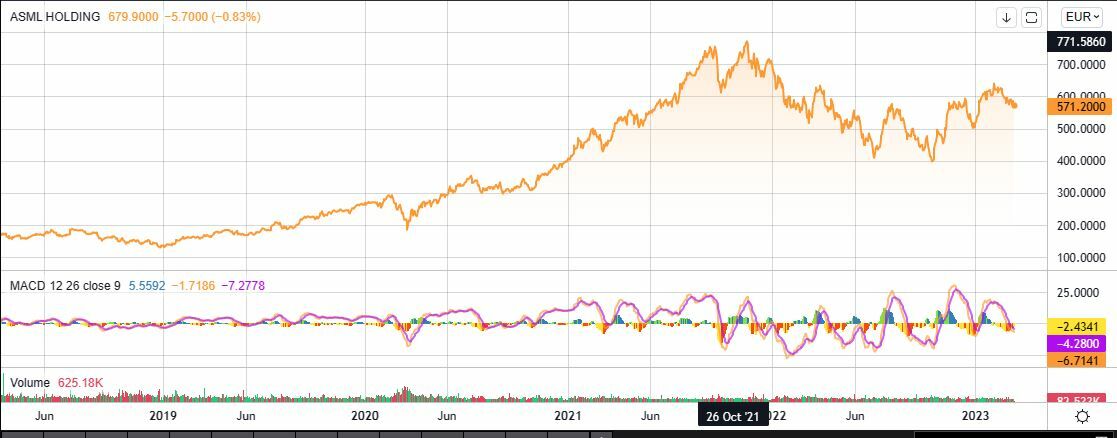The Dutch government on Wednesday announced measures that bring the Netherlands broadly in line with US goals to undermine China’s ability to manufacture cutting-edge chips. However, ASML Holdings and its Chinese customers do not yet know exactly how this will affect their business.
The largest European technology by market capitalization, ended 2022 with 14% of its sales in China and has sold more than 8,000 million euros worth of chip lithography equipment ($8,460 million) in the country over the past decade. Companies that buy their machines sign service contracts with ASML for ongoing maintenance. The installed base segment contributed approximately 25% to global ASML revenue in 2022.
The machines — each costing tens of millions of euros and performing an essential step in creating the chips’ circuitry — require unique parts and constant maintenance to keep working.
Analysts and the company itself confirm this Uncertainty on the part of the Dutch government This will weigh on the company’s prospects. Among the key questions raised are the possible maintenance restrictions and the models subject to the restrictions.
ASML itself confirms for the time being its forecast for 2023 of apartment sales in China of around 2,200 million euros. That figure compares to global revenue growth of 25%, showing the likely impact of the restrictions.
At the moment the company is waiting for more information about it. ING analyst Marc Hesselink estimated that the new Dutch regulations could potentially affect products that account for 10% of global ASML sales. However, this would be the worst-case scenario and the impact is likely to be small.
That’s because between ASML’s customers in China include South Korean chip makers SK Hynix and Samsung Electronics, which are likely to be licensed, as well as Chinese domestic companies such as logic chip maker SMIC and memory chip maker YMTC, which may and may not be subject to US export restrictions. Dutch Trade Minister Liesje Schreinemacher said yesterday that the Netherlands would issue licenses on a case-by-case basis and would not follow instructions from Washington.
ING’s Hesselink predicted that Most Chinese chipmakers will now choose to focus on the “trailing edge,” or producing chips with slightly older technology. The Chinese might have a competitive advantage there, and ASML sales in China might even grow slightly.
In any case, ASML will thrive outside of China in the long term as chipmakers around the world expand capacity, he said. “Demand for ASML machines will not be affected, it will just shift to another region,” he said.
Even with the uncertainty and more than 2% drops the company is seeing in the stock market today, its value is up more than 13% year-to-date, and analysts believe it still has upside at current prices. Reuters consensus estimates that the company’s target price over the next 12 months could be €715.25, leaving the upside at more than 25% above current prices.

Of the 32 analysts currently covering the stock, 26 have a Buy rating or Strong Buy versus five who remain neutral.